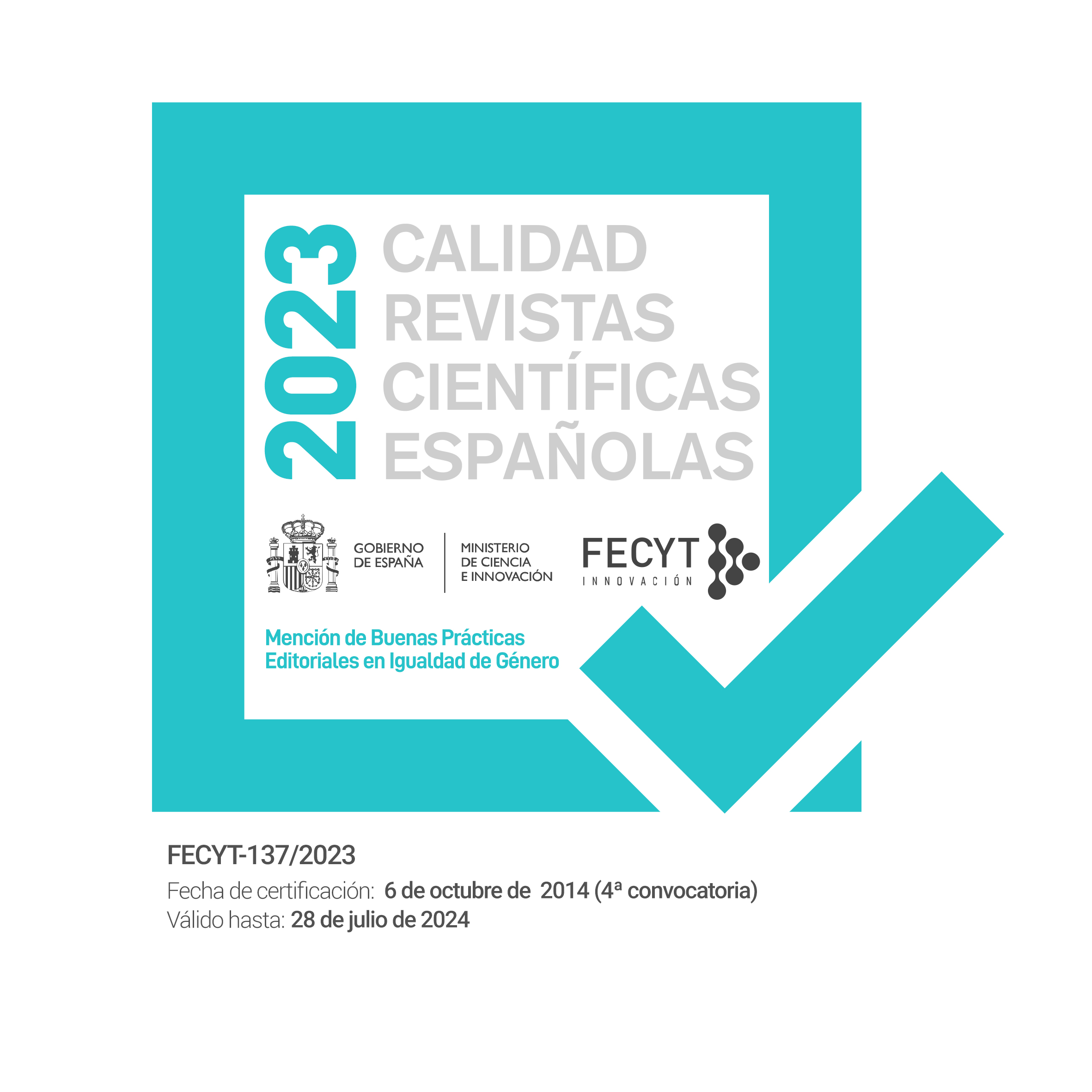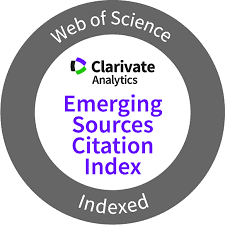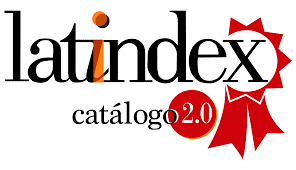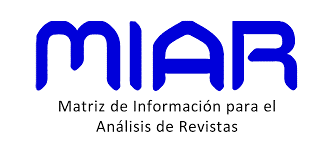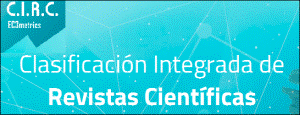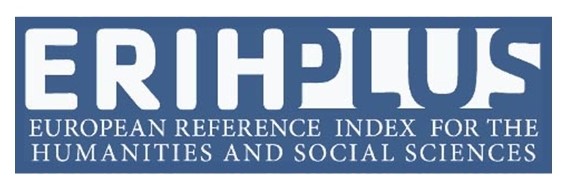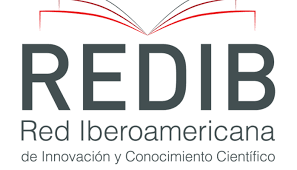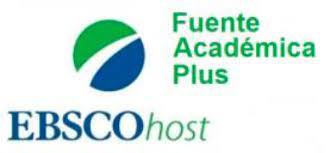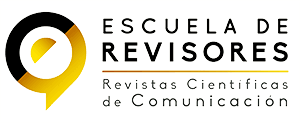Comunicar la sostenibilidad en las cadenas hoteleras españolas: el uso de las páginas web como herramienta de legitimación
DOI:
https://doi.org/10.31921/doxacom.n37a1855Palabras clave:
Comunicación de la sostenibilidad, legitimación, páginas web, cadenas hoteleras, EspañaResumen
Este estudio analiza la legitimación discursiva de la sostenibilidad en las páginas web de las cadenas hoteleras. Las estrategias clave de legitimación se examinan en relación con diferentes factores, a saber, el tamaño de la empresa, su estructura de propiedad y el tipo de sitio web. Los datos se extrajeron de las páginas web de las 35 cadenas hoteleras mayores de España según facturación en 2021. En primer lugar, se realizó un análisis de contenido; segundo, se cuantificó el discurso de la sostenibilidad; y tercero, se desarrolló un índice de contenido de sostenibilidad. El estudio encontró que el 76% de los hoteles seleccionados usaban sitios web para difundir información sobre sostenibilidad, pero el volumen del discurso era diferente en función del tamaño, las estructuras de propiedad y los tipos de páginas web. La dimensión “planeta” fue calificada con el mejor índice de sostenibilidad. El estudio proporciona información teórica sobre los mecanismos de legitimación de la sostenibilidad en los sitios web corporativos y de reservas de las cadenas hoteleras. El estudio ofrece una guía a los directivos del sector turístico para mejorar sus esfuerzos de comunicación corporativa y generar un compromiso adecuado entre las empresas y los grupos de interés.
Descargas
Citas
Ali, I., Rehman, K.U., Yilmaz, A.K., Nazir, S. and Ali, J.F. (2010). Corporate social responsibility and consumer retention in cellular industry of Pakistan. African Journal of Business Management, 4(4), 475-485
Alibašić, H. (2017). Measuring the sustainability impact in local governments using the quadruple bottom line. The International Journal of Sustainability Policy and Practice, 13(3), 37-45. https://doi.org/10.18848/2325-1166/cgp/v13i03/37-45
Belova, O., King, I. and Sliwa, M. (2008). Introduction Polyphony and Organization Studies: Mikhail Bakhtin and Beyond. Organization Studies, 29(4), 493-500.
Branco, M.C. and Rodrigues, L.L. (2008). Social responsibility disclosure: A study of proxies for the public visibility of Portuguese banks. The British Accounting Review, 40(2), 161–181.
Breeze, R. (2012). Legitimation in corporate discourse: Oil corporations after Deepwater Horizon. Discourse and Society, 23(1), 3–18.
Breeze, R. (2018). Researching evaluative discourse in annual Reports using semantic tagging. Ibérica, 35, 41–66. https://rb.gy/fxpur6
Breeze, R. (2021). Understandable Public Anger: Legitimation in Banking after the 2008 Crisis. Pragmatics, 31(4), 483–508. https://rb.gy/2nal4o
Breeze, R. and Fernández-Vallejo A.M. (2020). Comparing corporate social responsibility discourses in the letter to shareholders: the case of British and Spanish Banks. ESP Today, 8(2), 250-274.
Camilleri, M.A. (2016). Unlocking corporate social responsibility communication through digital media. Lindgreen, A., Vanhamme, J., Maon, F. and Watkins, R. (Eds), The Use and Effectiveness of CSR Communication through Digital Platforms, Gower Publishing, Oxford, 1-16.
Carrillo, M. and Jorge, J.M. (2017). Multidimensional Analysis of Regional Tourism Sustainability in Spain. Ecological Economics, 140, 89–98.
Castelló, I., Morsing, M., and Schultz, F. (2013). Communicative dynamics and the polyphony of corporate social responsibility in the network society. Journal of Business Ethics, 118(4), 683-694.
Confetto, M. G., and Covucci, C. (2021). A taxonomy of sustainability topics: a guide to set the corporate sustainability content on the web. The TQM, 2021-05-20. https://rb.gy/psqc7n
Cuadrado-Ballesteros, B., Rodríguez-Ariza, L. and García-Sánchez, I.M. (2015). The role of independent directors at family firms in relation to corporate social responsibility disclosures. International Business Review, 24(5), 890-901.
Domingues, A.R., Lozano, R., Ceulemans, K., and Ramos, T.B. (2017). Sustainability reporting in public sector organisations: Exploring the relation between the reporting process and organisational change management for sustainability. Journal of Environmental Management, 192, 292-301.
Edgell Sr, D.L. (2019), Managing sustainable tourism: A legacy for the future. Routledge, London.
Elalfy, A., Weber, O. and Geobey, S. (2021). The Sustainable Development Goals (SDGs): a rising tide lifts all boats? Global reporting implications in a post SDGs world. Journal of Applied Accounting Research, 22(3), 557-575. https://rb.gy/fmnovq
Elkington, J. (2007). Accounting for the tripple bottom line. Measuring Business Excellence, 2(3), 18–21.
Fernández-Vázquez, J. S. (2021). Analysing the environmental websites of the world’s greatest polluters: a multimodal ecolinguistic approach. Economic Research-Ekonomska Istraživanja, 34(1), 2692-2711.
Foris, D., Crihalmean, N., & Foris, T. (2020). Exploring the environmental practices in hospitality through booking websites and online tourist reviews. Sustainability, 12(24), 10282.
Francis, T. and Hoefel, F. (2018). ‘True Gen: Generation Z’ and its implications for companies. McKinsey and Company, 12, disponible en: https://rb.gy/9zdpeu (acceso: 15 mayo 2022).
Freeman, R.E. (2015). Stakeholder theory. Wiley Encyclopedia of Management. Choice Reviews Online, 52, 1-6
García García, M., Carrillo-Durán, M.V. and Tato Jiménez, J.L. (2017). Online corporate communications: website usability and content. Journal of Communication Management, 21(2), 140-154.
García‐Sánchez, I.M., Martín‐Moreno, J., Khan, S.A., and Hussain, N. (2021). Socio-emotional wealth and corporate responses to environmental hostility: Are family firms more stakeholder oriented?. Business Strategy and the Environment, 30(2), 1003-1018.
Glozer, S., Caruana, R. and Hibbert, S.A. (2019). The Never-Ending Story: Discursive Legitimation in Social Media Dialogue. Organization Studies, 40(5), 625-650
Gómez-Mejía, L.R., Haynes, K.T., Núñez-Nickel, M., Jacobson, K.J., and Moyano-Fuentes, J. (2007). Socioemotional wealth and business risks in family-controlled firms: Evidence from Spanish olive oil mills. Administrative science quarterly, 52(1), 106-137.
Gomez, L.M. and Borges-Tavarez, R.W. (2017). CSR online communication in Latin America: an analysis of social media platforms. Gómez, L.M., Preciado, L.V. and Crowther, D. (Eds), Corporate Social Responsibility and Corporate Governance (Developments in Corporate Governance and Responsibility), 11, Emerald Publishing Limited, pp.113-132.
Gössling, S. (2018). Tourism, tourist learning and sustainability: An exploratory discussion of complexities, problems and opportunities. Journal of Sustainable Tourism, 26(2), pp 292-306.
Hosteltur (2021). La aportación del turismo a la economía española cae del 12,4% al 4,3%, disponible en: https://rb.gy/yer3h0, (acceso 15 mayo 2022)
Hosteltur (2022). Ranking Hosteltur de facturación de las grandes cadenas españolas. Disponible en: https://onx.la/48f03 (acceso 17 diciembre 2022)
Gray, M.R., and Milne, M. (2013). , Towards reporting on the triple bottom line: mirages, methods and myths. The Triple Bottom Line, 92-102, Routledge, London.
Iaia, L., Vrontis, D., Maizza, A., Fait, M., Scorrano, P., and Cavallo, F. (2019). Family businesses, corporate social responsibility, and websites: The strategies of Italian wine firms in talking to stakeholders. British Food Journal, 121(7), 1442-1466.
Instituto Nacional de Estadística (2020). Cuenta Satélite del Turismo en España (CSTE), Revisión estadística 2019 - Serie 2016-2018.
Joseph, C., Pilcher, R. and Taplin, R. (2014). Malaysian local government internet sustainability reporting. Pacific Accounting Review, 26(1–2), 75-93.
Kim, S., & Rader, S. (2010). What they can do versus how much they care: Assessing corporate communication strategies on Fortune 500 web sites. Journal of Communication Management, 14(1), 59-80.
Law, R. (2019). Evaluation of hotel websites: Progress and future developments (invited paper for “luminaries” special issue of International Journal of Hospitality Management). International Journal of Hospitality Management, 76, 2-9.
Li, L., Peng, M., Jiang, N., and Law, R. (2017). An empirical study on the influence of economy hotel website quality on online booking intentions. International Journal of Hospitality Management, 63, 1-10.
Li, Z. and Haque, S. (2019). Corporate social responsibility employment narratives: a linguistic analysis. Accounting, Auditing and Accountability Journal, 32(6), 1690-1713.
Lock, I. and Seele, P. (2016). The credibility of CSR (corporate social responsibility) reports in Europe. Evidence from a quantitative content analysis in 11 countries. Journal of Cleaner Production, 122, 186-200.
Lodhia, S. (2018). Sumit. "Is the medium the message?. Meditari Accountancy Research, 26(1), 2-12.
Lodhia, S., Kaur, A. and Stone, G. (2020). The use of social media as a legitimation tool for sustainability reporting. Meditari Accountancy Research, 28(4), 223-249. https://rb.gy/tokr9p
Maignan, I. and Ferrell, O. C. (2004). Corporate Social Responsibility and Marketing: An Integrative Framework. Journal of the Academy of Marketing Science, 32(1), 3-19.
Malavasi, D. (2010). The multifaceted nature of banks” annual reports as informative, promotional and corporate communication practices. Evangelisti Allori, P. and Garzone,G. (eds.), Discourse, Identities and Genres in Corporate Communication, Peter Lang, Bern, pp. 211-233.
Moyaert, H., Vangehuchten, L., and Fernández-Vallejo, A.M. (2021). The CRS communication strategy of Iberdrola on facebook and twitter: a corpus-based linguistic and content analysis. Revista de Comunicación de la SEECI, 54, 119-142.
Nekhili, M., Nagati, H., Chtioui, T., and Rebolledo, C. (2017). Corporate social responsibility disclosure and market value: Family versus nonfamily firms. Journal of Business Research, 77, 41-52.
Palazzo, M., Vollero, A. and Siano, A. (2020). From strategic corporate social responsibility to value creation: an analysis of corporate website communication in the banking sector. International Journal of Bank Marketing, 38(7), 1529-1552.
Pérez, A. and del Bosque, I.R. (2015). How customer support for corporate social responsibility influences the image of companies: Evidence from the banking industry. Corporate Social Responsibility and Environmental Management, 22(3), 155-168.
Reisinger, Y. and Crotts, J.C. (2010). Applying Hofstede’s national culture measures in tourism research: Illuminating issues of divergence and convergence. Journal of Travel Research, 49(2), 153-164.
Riffe, D., Lacy, S., Watson, B.R., and Fico, F. (2019), Analyzing media messages: Using quantitative content analysis in research. Routledge, London.
Rodríguez-Antón, J.M., del Mar Alonso-Almeida, M., Celemín, M.S., and Rubio, L. (2012). Use of different sustainability management systems in the hospitality industry. The case of Spanish hotels. Journal of Cleaner Production, 22(1), 76-84.
Ruiviejo, A.C.A., and Morales, E.M.S. (2016). Social responsibility in the Spanish financial system. Social Responsibility Journal, 12(1), 103-116.
Scherer, A.G., Palazzo, G. and Seidl, D. (2013). Managing legitimacy in complex and heterogeneous environments: Sustainable development in a globalized world. Journal of Management Studies, 50, 259–84.
Siano, A., Conte, F., Amabile, S., Vollero, A., & Piciocchi, P. (2016). Communicating sustainability: An operational model for evaluating corporate websites. Sustainability, 8(9), 950.
Simoes, C., Dibb, S. and Fisk, R. (2005). Managing corporate identity: an internal perspective. Journal of the Academy of Marketing Science, 33(2), 153-158.
Stemler, S. (2001). An overview of content analysis. Practical Assessment, Research and Evaluation, 7(17). https://rb.gy/i7kyke
Stohl, C. (2017). Social Media Policies: Implications for Contemporary Notions of Corporate Social Responsibility. Journal of Business Ethics, 142(3), 413-436.
Su, R. and Liang, D. (2020). The study on the influence of online interactivity on purchase intention on B2C websites: The interference moderating role of website reputation. Advances in Intelligent Systems and Computing, Springer, Cham, 628-640.
Suchman, M.C. (1995). Managing Legitimacy: Strategic and Institutional Approaches. Academy of Management Review, 20(3), 571-610.
Swestiana, A., Kusworo, H. A., & Fandeli, C. (2022). Greenwashing or Greenhushing?: A Quasi-Experiment to Correlate Green Behaviour and Tourist’s Level of Trust Toward Communication Strategies in Volunteer Tourism’s Website. Jurnal Kepariwisataan: Destinasi, Hospitalitas dan Perjalanan, 6(1), 53-66.
TUSPAIN (2017), Eco Tourism and Spain.
Ubeda-Garcia, M., Rienda, L., Zaragoza-Saez, P. C., & Andreu-Guerrero, R. (2021). The impact of knowledge management on the internationalization, organizational ambidexterity and performance of Spanish hotel chains. International Journal of Contemporary Hospitality Management, 33(5), 1507-1531.
Villarino, J. and Font, X. (2015). Sustainability marketing myopia: The lack of persuasiveness in sustainability communication. Journal of Vacation Marketing, 21(4), 326-335.
Wen Cheng, F. (2016). Constructing hotel brands: A multimodal analysis of luxury hotel homepages. Ibérica, 31, 83–108. https://rb.gy/wior8x
Wickert, C., Scherer, A.G. and Spence, L.J. (2016). Walking and Talking Corporate Social Responsibility: Implications of Firm Size and Organizational Cost. Journal of Management Studies, 53(7), 1169-1196.
Descargas
Publicado
Cómo citar
Número
Sección
Licencia
Derechos de autor 2023 Ana María Fernández-Vallejo

Esta obra está bajo una licencia internacional Creative Commons Atribución-NoComercial 4.0.




